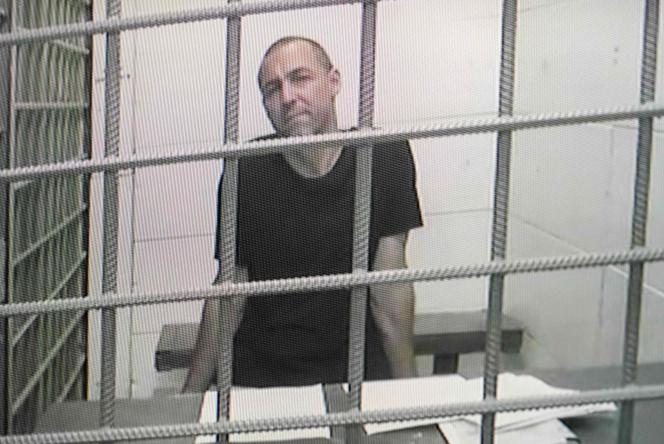


Laurent Vinatier, a de facto hostage of the tug-of-war between Russia and France, will remain in prison in Moscow this summer. Nearly a month after the arrest of the Frenchman, an expert in the post-Soviet space and an employee of the Swiss organization Centre for Humanitarian Dialogue (HD), the Russian courts rejected his appeal for release on Thursday, July 4. The Zamoskvoretsky district court in Moscow has decided to keep him in pre-trial detention until August 5.
Vinatier, who appeared from prison by videolink with a shaved head and looking tired, is formally charged with violating the law on "foreign agents." At a previous hearing, he had already admitted that he had not registered himself, a requirement which is usually reserved for Russians suspected of political activity and foreign funding, but which can also apply to foreigners. The Frenchman, who frequently travels to Russia, apologized to the court, saying he was unaware that Russian law required him to do so.
There is still confusion over the actual basis for the arrest and prosecution. The investigative committee, a powerful judicial body directly answerable to the Kremlin, suspects Vinatier of having collected information on Russian military activities over several years that "could be used against state security." This wording has been used by the committee since the day of his arrest on June 6, when the 47-year-old was arrested on the terrace of a Moscow café and led away by hooded police officers. This charge borders on espionage, which is far more serious than the offense of failing to register: The former is punishable by up to 20 years imprisonment, the latter by just five.
The investigative committee is using article 330.1, which is vague. It would allow prosecution for both non-registration and the collection of sensitive information. In a press release issued the day before the hearing on July 3, the investigative committee suggested that the Frenchman had admitted his guilt in all of these matters, a claim denied by those close to him. He is also apparently accused of having obtained documents. If so, the case would be similar to that of Evan Gershkovich, the 32-year-old Wall Street Journal correspondent who became the first Western journalist to be arrested for spying in Russia since the end of the Cold War.
The Russian security services (FSB, one of the successors of the KGB) accused him of "collecting information about a company in the Russian military-industrial complex," a crime punishable by 20 years in prison. Fifteen months after his arrest – and a lengthy, classified procedure during which the investigators never publicly presented a single piece of evidence – his trial began on June 26 behind closed doors. Gershkovich could eventually be exchanged by Washington for Russians detained in the West.
You have 51.04% of this article left to read. The rest is for subscribers only.
